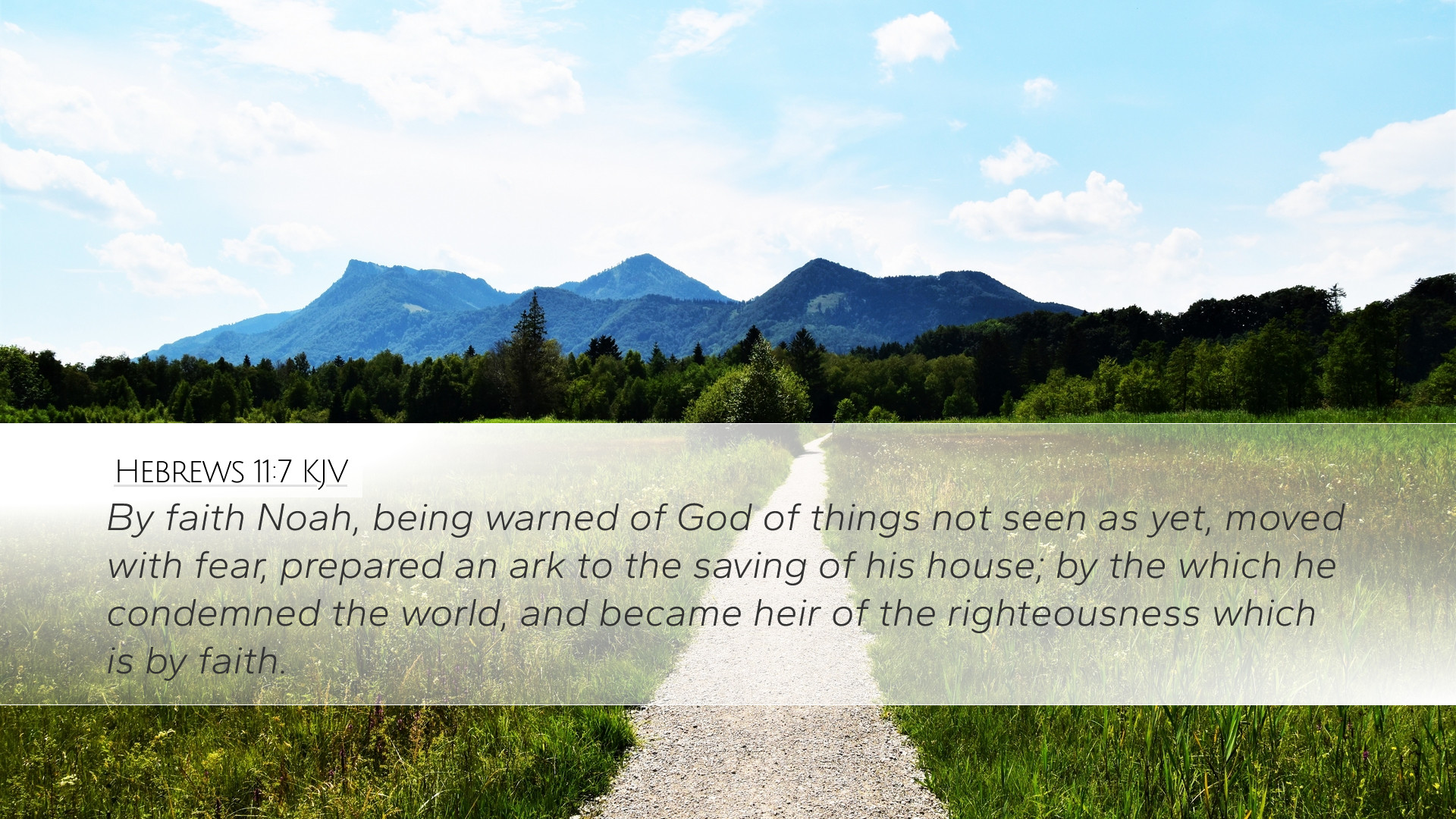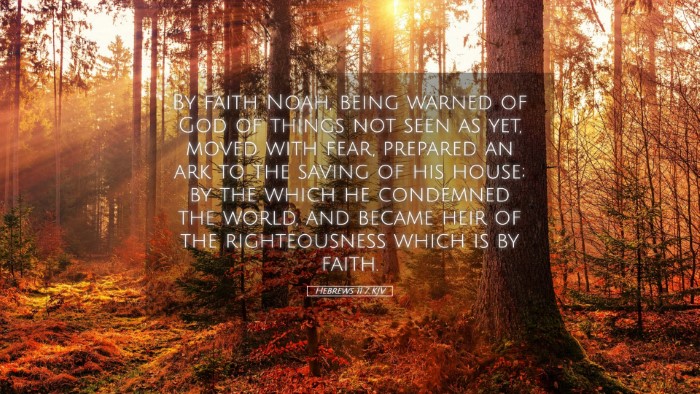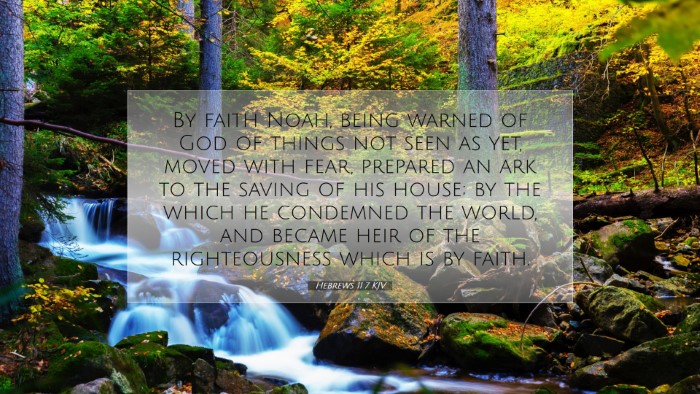Commentary on Hebrews 11:7
Verse: “By faith Noah, being warned of God of things not seen as yet, moved with fear, prepared an ark to the saving of his house; by the which he condemned the world, and became heir of the righteousness which is by faith.”
Introduction
Hebrews 11:7 presents a profound insight into the faith of Noah, exemplifying the nature of faith and obedience to God's commands in the midst of societal derision and impending judgment. This verse serves as a vital link in the author of Hebrews’ exposition concerning the nature of faith illustrated through the lives of the patriarchs. In exploring this verse, we will draw insights from esteemed public domain commentators: Matthew Henry, Albert Barnes, and Adam Clarke.
Faith's Prompting
Matthew Henry emphasizes that Noah's faith was activated by the divine warning concerning impending events that were “not seen as yet.” He draws attention to the essence of being warned by God, demonstrating that true faith is responsive to God's revelations, even when they contradict human reasoning or experience. Noah's faith was manifested in action, in stark contrast to the disbelief that surrounded him.
Albert Barnes elaborates that the phrase “moved with fear” indicates an awe-inspired reverence towards God’s command. Noah’s fear was not a paralyzing dread but a holy respect that underscored his obedience. This illustrates a profound characteristic of faith: that it intertwines with fear of the Lord, which is the beginning of wisdom (Proverbs 9:10).
Preparation of the Ark
Noah’s preparation of the ark stands as a testament to the practical outworking of faith. Adam Clarke comments that Noah's work was undertaken amidst the opposition of a world steeped in ungodliness and disbelief. He notes that the ark symbolizes salvation through obedience, foreshadowing the redemption found in Christ. Clarke asserts that Noah’s actions serve both as a condemnation of wickedness and as a beacon of hope for righteousness.
Matthew Henry draws attention to the monumental task of building the ark, noting Noah’s unwavering commitment and perseverance in obeying God’s instructions despite external scorn. He stresses that true faith often requires enduring labor and investment, even when the results are not immediately visible.
The Significance of Salvation
The phrase “to the saving of his house” indicates the familial aspect of Noah’s faith. Albert Barnes points out that Noah's act of faith not only preserved him but also secured the salvation of his household. This underscores the often-overlooked truth that faith has communal implications and responsibilities, indicating that a believer's faith can influence those within their immediate sphere of life.
Henry adds depth to this thought by suggesting that the salvation of Noah’s household reflects God’s mercy and grace, and it stands as an encouragement for families to seek God's preservation through collective faith and obedience.
Condemnation of the World
Noah's faithful actions “condemned the world” which highlighted the stark contrast between righteousness and wickedness. Adam Clarke notes that Noah’s faith was a witness against an unbelieving generation. By preparing the ark, he demonstrated the futility of the world's wickedness and the imminent judgment that awaited it.
Barnes further elaborates that Noah’s existence and faith represented a call to repentance, indicating that the world judged itself by its refusal to heed the warnings Noah manifested through his faith. This aspect of the verse speaks to the greater narrative of God's redemptive history, where the faithful witness of one can impact many.
Inheriting Righteousness
Finally, the concept of Noah “becoming heir of the righteousness which is by faith” captures the culmination of his obedience and trust in God. Matthew Henry highlights that this righteousness is a gift from God, credited to those who exhibit faith, akin to the faith of Abraham. Noah became a model of hope for believers, emphasizing that righteousness derives not from works, but from faith that manifests itself in obedience.
Adam Clarke stresses the idea that this righteousness is not merely a legal status but has transformative power, affecting life and conduct. It calls believers to a righteous lifestyle that exhibits itself amid a corrupt generation.
Conclusion
Hebrews 11:7 encapsulates a profound narrative of faith that is both historical and highly applicable. The diligent work of Noah informs pastors, students, theologians, and Bible scholars about the nature of faith as a combination of belief, action, and communal responsibility. As we reflect on the life of Noah, we are encouraged to live out our faith in obedience, to heed the warnings of God, and to stand boldly against the prevailing winds of disbelief. Ultimately, by emulating Noah's faith, we too participate in the legacy of righteousness that comes from faith.


